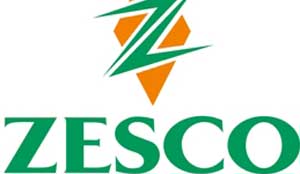 By MAIMBOLWA MULIKELELA –
By MAIMBOLWA MULIKELELA –
ZESCO Limited is spending around US$5 million annually to subsidise commercial entities including mining companies, which are the largest consumer of electricity in country.
Zesco director for finance Rodgers Chisambi said mining companies consumed 50 per cent of the electricity supplied around the country.
Mr Chisambi said the only way to achieve a sustainable cost reflective tariff was by resolving the price differential system for electricity tariffs which would stop subsidising commercial and industrial entities.
Mr Chisamba told the Parliamentary Committee on Estimates during submissions on the utilisation of sovereign bonds that it was important that the issue of electricity tariffs was resolved as soon as possible.
“We are buying power from independent producers at a very high cost and selling it at half the price to the mining companies. It is this risk that we need to share with you the members of Parliament and why the issue of tariffs need to be resolved now.
The price differential has not been resolved and we cannot continue to subsidise commercial entities which include the mines,” he said.
Mr Chisambi said it was important to ensure that electricity tariffs were cost reflective and that to this effect the power utility company had proposed to the implementation of a domestic freeze on electricity tariffs for two years.
The freeze would enable commercial entities to be on the same level with domestic customers as regards tariffs.
Domestic customers consumed only 20 per cent of the electricity generated by Zesco.
Zesco managing director Cyprian Chitundu said the Government allocated $255 million from the $750 million sovereign bond meant to increase the generation capacity of electricity, upgrade and rehabilitation of the distribution network.
Mr Chitundu said $186 million received in 2012 was allocated for the construction of Kafue George lower.
The project was estimated to cost US$2 billion and was expected to be constructed over a five-year period.
“The current allocation of $186 million will not be sufficient to meet the required equity injection. Based on the existing shareholding proposal and subject to any amendments, the shortfall in equity contribution is estimated at $174 million,” Mr Chitundu said.
“Work undertaken so far includes the incorporation of the special purpose vehicle, formation of a project implementation unit and the procurement of various consultants”.






